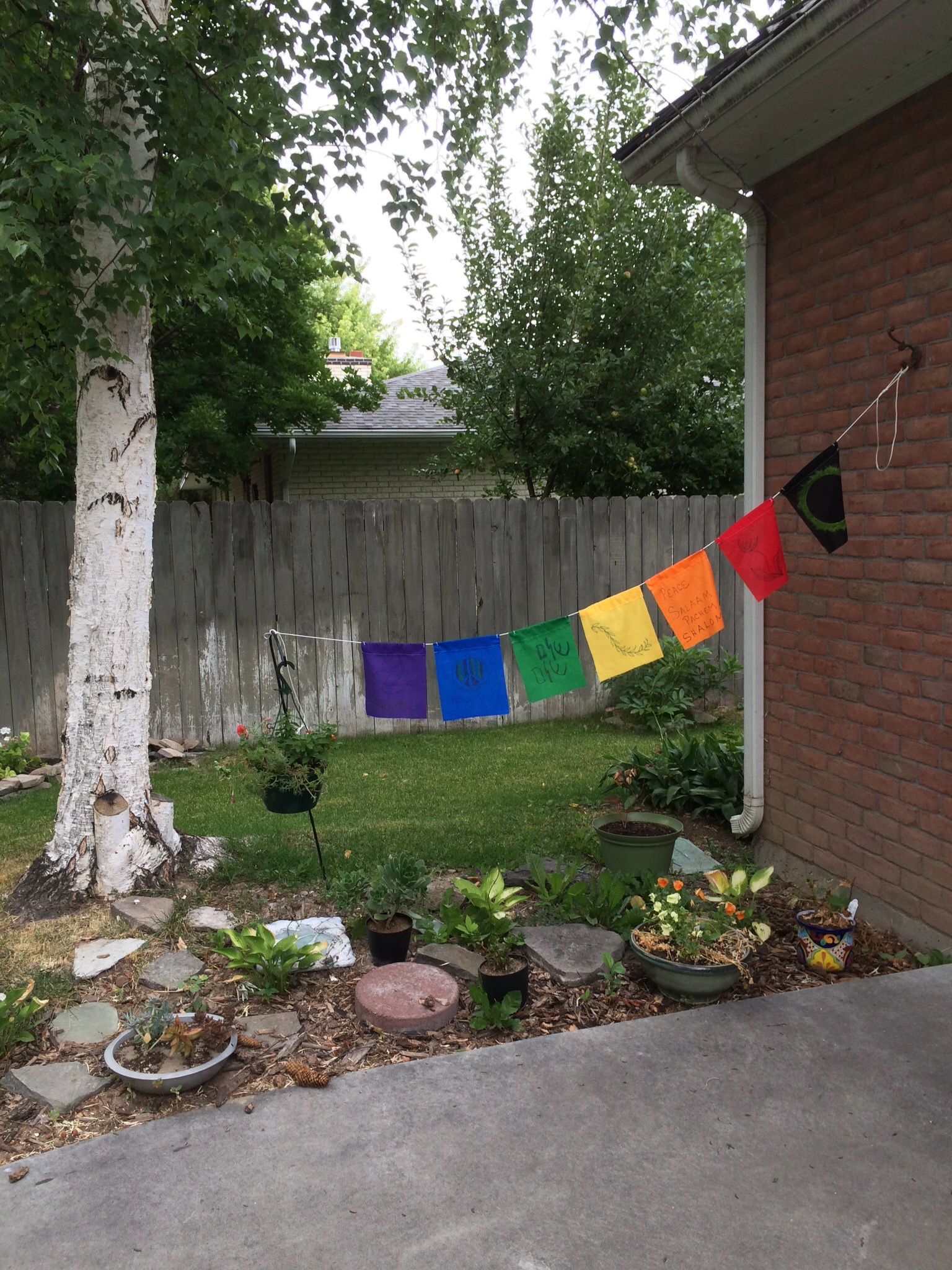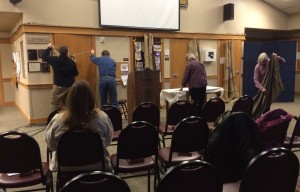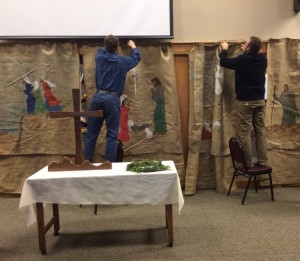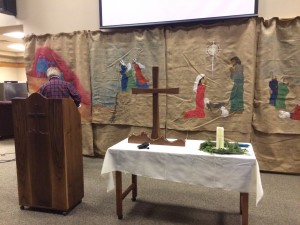Lessons from the raspberry patch…. 
- 1. Raspberries ripen on their schedule, not mine. There’s nothing I can do to either rush or postpone the ripening process. I have to be flexible and adjust my schedule. Either I pick the berries when they are ripe or they don’t get picked. Even when I think I’ve planned my summer to be home at the ripe time, a late spring or wet summer can affect the harvest and disrupt my plans.
Churches and people do things on their schedules, not mine. The Holy Spirit works in God’s good time, not ours. Sometimes the best plans have to be tossed aside in order to respond to an immediate need or to join in what God is already creating. Be willing to adapt and change your plans. Be flexible!
- Picking raspberries in mid-July means the very early bird gets to avoid the intense heat and sunshine of the day. My preferred morning routine is to wake up slowly, with time for plenty of coffee, news, journal and other reading before gettin on with my day. But that would mean being outside in mid-day heat. So routines get upended. However, an advantage to working in the cool of very early summer mornings is the accompaniment of nature’s soundtrack played by chirping birds, rustling leaves, and a minimum of human activity.
For the most effective use of our time, energy, and gifts for service, we have to recognize the particular context in which we minister. We need to be realistic in assessing situations which are likely to cause stress or be unhealthy. Making adjustments to our schedule or programs can yield unexpected benefits – if we pay attention to our surroundings.
- Picking raspberries can be difficult and uncomfortable. I regularly encounter spiders, thistles, weeds, flies, bees, and other unpleasant garden inhabitants. My clothes get stained. I get scratched, bit, and itchy. Which makes me very grateful for a hot shower and clean clothes – and makes the berries taste better.
We can prepare for difficult situations and unpleasant people through healthy spiritual and leadership practices, but we can’t avoid all pain or discomfort. Those same practices – sabbath time, study, colleague support, coaching, prayer, worship, etc – also are resources for refreshment, recovery, and learning how to deal with future problems.
- A change in perspective can reveal hidden treasure. Just when you think you’ve picked all the ripe berries in one spot, a tiny change – moving a few leaves or taking a small step or turning your head – can provide a new perspective revealing fruit that would have remained hidden.
Just when we think we’ve done all we can do, a change in perspective – taking a break, reframing a problem, asking a different question, looking at a situation through someone else’s eyes or circumstances may reveal a new possibility. Changing an assumption or removing a limit or taking a risk may yield an entirely new harvest.
- You can’t pick them all. Some will fall to the ground. Some will get too ripe and dry up. Some will get eaten by the birds. Some will be out of reach. Sometimes you can’t change your schedule or other needs have a higher priority.
Recognize limits. Set priorities and follow them. Time and energy are finite. Not every berry is worth the time and energy we must expend to pick it. Other people may be better suited to deal with what is beyond my reach.
- The work doesn’t end with the harvesting. Once the berries are picked, they are perishable. The fruit needs to be rinsed and then quickly stored by freezing or canning or used – to make jam, jelly, muffins or cobbler. (See Lesson #1.)
How do we follow up on the initial accomplishment? How do we make good use of what’s been harvested? What work needs to be done to preserve the fruits of God’s gifts to us? Does our fear of scarcity mean we hoard rather than share? What other ingredients do we need to create something that is tasty and nutritious?
- Plan ahead for the future. Raspberry canes which have already produced berries need to be cut back to make room for new canes. Keeping a patch pruned makes it easier to mulch, weed, and harvest – and to be more productive – next year. (See Lesson #3.)
What old habits or assumptions are getting in the way of our mission? What do we need to shed in order to move forward, to be effective, to have an impact on lives and communities? How do we clear out the deadwood blocking our path, the weeds choking out new growth? What is no longer useful and productive in our ministry?
- Harvests should be shared. Perhaps your friend’s patch isn’t producing this year because her new puppy did too much digging or because he was too zealous in last fall’s pruning – or they don’t have room for a garden. Sharing can continue throughout the year when frozen berries are made into delightful treats.
Grace and gratitude is who we are and what we do. We respond to God’s loving gifts to us in the ways we love others. When we love others by sharing God’s gifts, we are loving our generous God.
- Treat yourself! Pop a freshly picked berry into your mouth instead of the pail or basket. (See Lesson #5.) Just as you don’t have to pick every berry, you don’t have save everything for later. Learn to enjoy the moment – and the berry at hand.
Taste and see that the Lord is good! To be in ministry is a gift. To serve God’s people is a privilege. Ministry is also work. Once in awhile, we need a treat, a taste of God’s glorious creation in the here and now. Sometimes we are the ones who need to be reminded that in this very moment we are wrapped in the loving embrace of Creator, delighting just in being, and savoring the amazing power of the One who can do far more than we can ever imagine or ask





